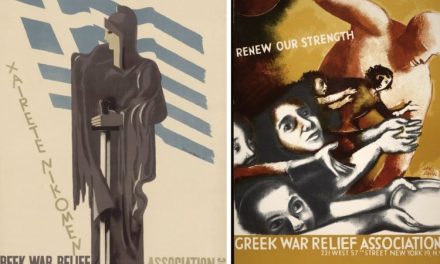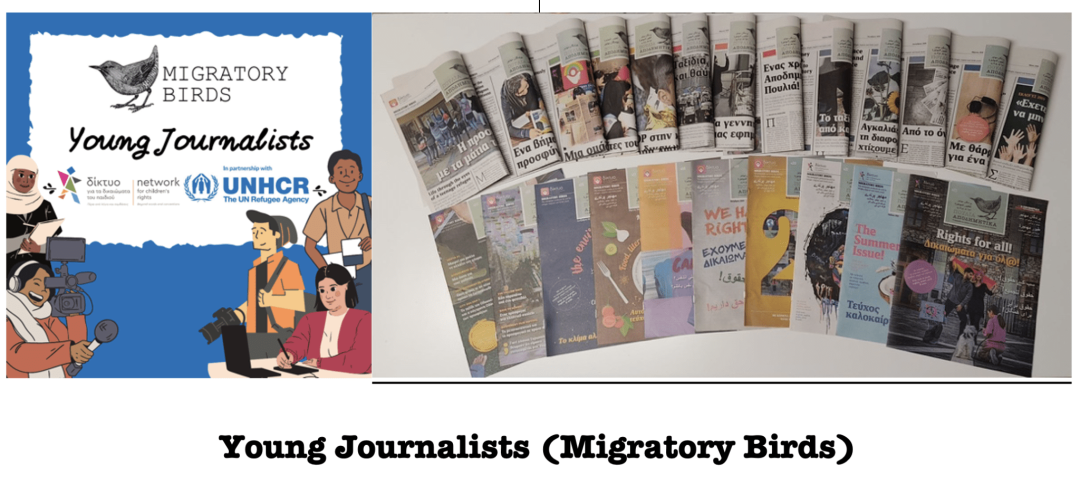
“Migratory Birds” is a newspaper published in Greece by a team of teenage and young migrants, refugees and Greeks. The newspaper, which is an initiative of the Network for Children’s Rights, is multilingual, publishing articles in Arabic, English, Farsi, Greek and Urdu. This initiative aims to give a voice to young refugees and empower them tell their own stories and expresses themselves, while reaching out to the wider public and informing them on the reality of refugee life. Migratory Birds aspires to contribute to the promotion of intercultural dialogue and to the fight against xenophobia, while facilitating the social integration of refugees and migrants.
Young Journalists
The idea for this project was born by the hesitation of people living in refugee camps to talk to journalists, as they believed that their stories would not be presented as they should. So, in 2016, fifteen Afghan teenagers and a young Greek woman decided to become journalists themselves and be the voices of the refugee population, with the help of the “Young Journalists” program. This program was developed by the Network for Children’s Rights with the aim to familiarize at teenagers and young adults with media and journalism, it is an original system of non-formal education as well as an inclusive training practice, equipped with tools for the inclusion of vulnerable groups.
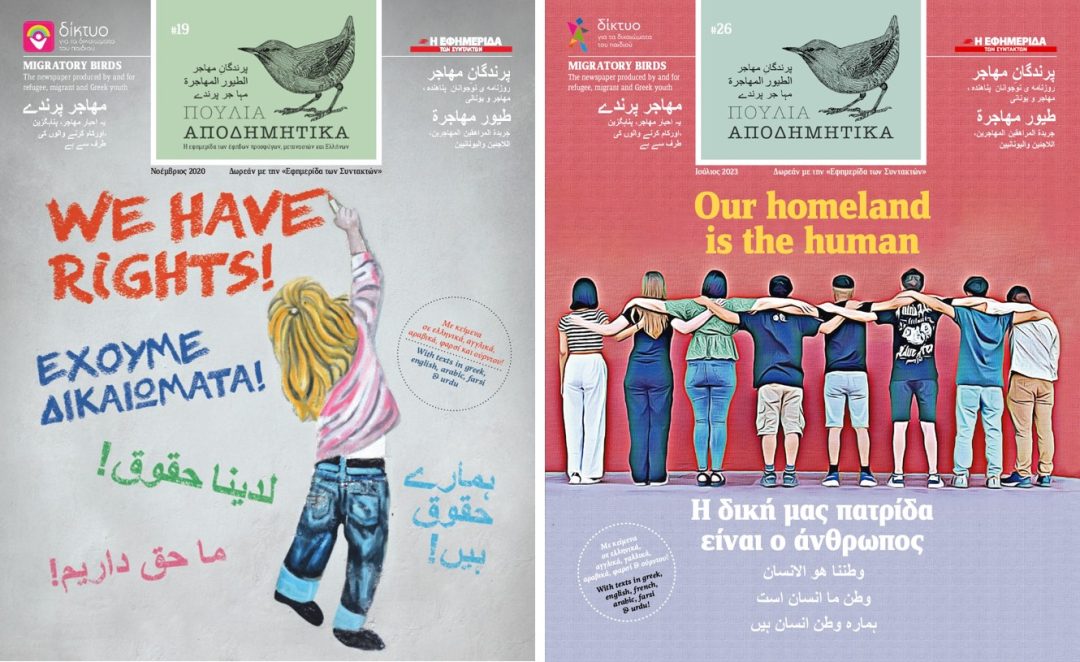
Currently, adolescents from Syria, Afghanistan, Iran, Iraq, Pakistan, Albania, Georgia and Greece participate in writing and editing the newspaper, which is published every two months in the form of a supplement for the daily “Ef.Syn.” The issues, also distributed in schools and refugee camps, are free. Since first issue of the newspaper was released, the group evolved and is constantly being enriched with a lot of new members from different backgrounds, nationalities and languages. In 2019, the team launched the website of “Migratory Birds” and later on, the web radio station “Dandelion”.
Thanks to workshops, journalism courses, visits to professional locations, but also the editorial meetings organized by the Young Journalists program, the young participants manage to form a theoretical framework which allows them to successfully conduct interviews with political figures, successful professionals, etc. while three of the participants successfully completed, during the past year, internships in media companies.
Every week the participants get together, research and write their articles, conduct interviews, discuss current affairs, record broadcasts and prepare the next issue of the newspaper. The topics covered in the articles vary from refugees’ journeys to their interests in art, sports and culture, among others. Among the interviewees of the team are the representative of the United Nations High Commissioner for Refugees (UNHCR), the US ambassador, the president of the Roma community in Greece and an American expert on human trafficking. The program has expanded over the years, now including multi-generational immigrants and young Greeks. All participants are aged 13 to 24 and work as volunteers.
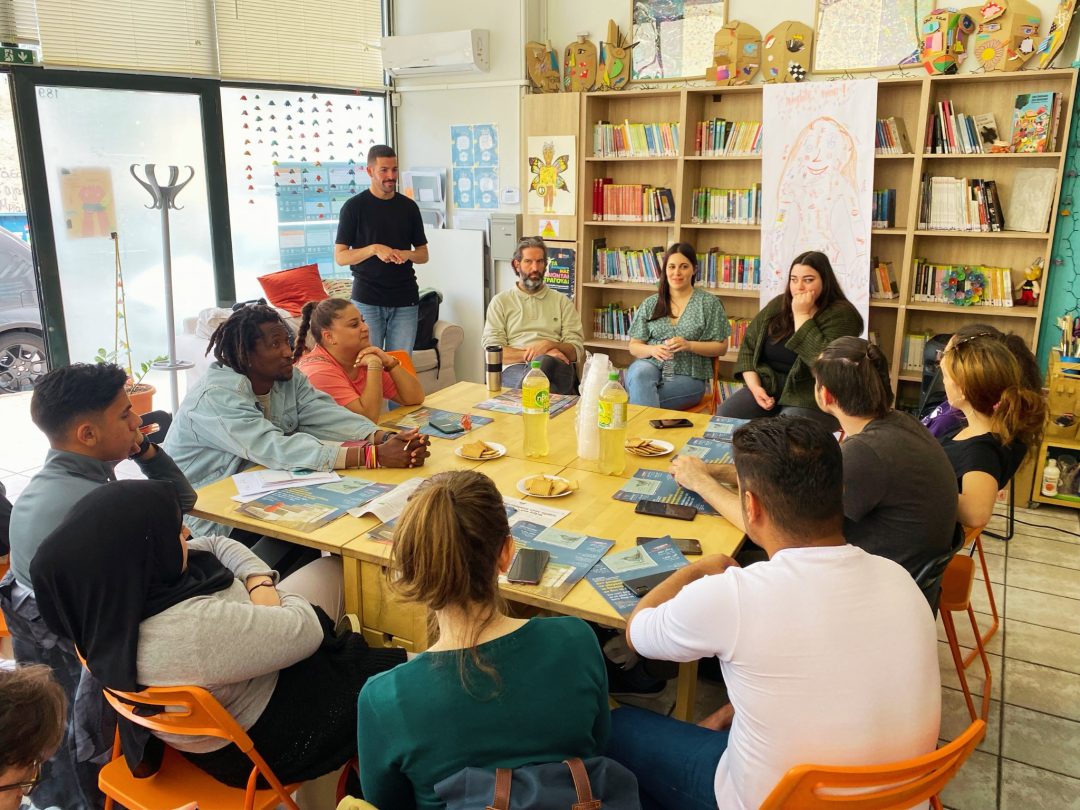
Access to media is a powerful tool that can strengthen marginalized and vulnerable population groups, such as migrants and refugees. It is also a platform that allows adolescents to communicate their problems and concerns, but also to develop their skills and share their worries and dreams for the future, while maintaining contact with their native language and culture. Furthermore, interaction with other adolescents and adults, outside of refugee accommodation centers and homes for unaccompanied minors, improves young refugees’ integration into existing social networks and motivates them to actively participate in them.”We facilitate the process of integrating refugees into society, in particular through this cooperation between people from different backgrounds. This helps avoid negative reactions and fight against xenophobia,” says Network director Panos Christodoulou.
The Migratory Birds journal also aims to combat the underrepresentation and sometimes stereotypical presentation of refugees in the media. A Council of Europe report concluded in 2017 that “refugees and migrants have few opportunities to speak directly about their experiences and suffering. More often than not, they are singled out and portrayed in images as silent victims.”
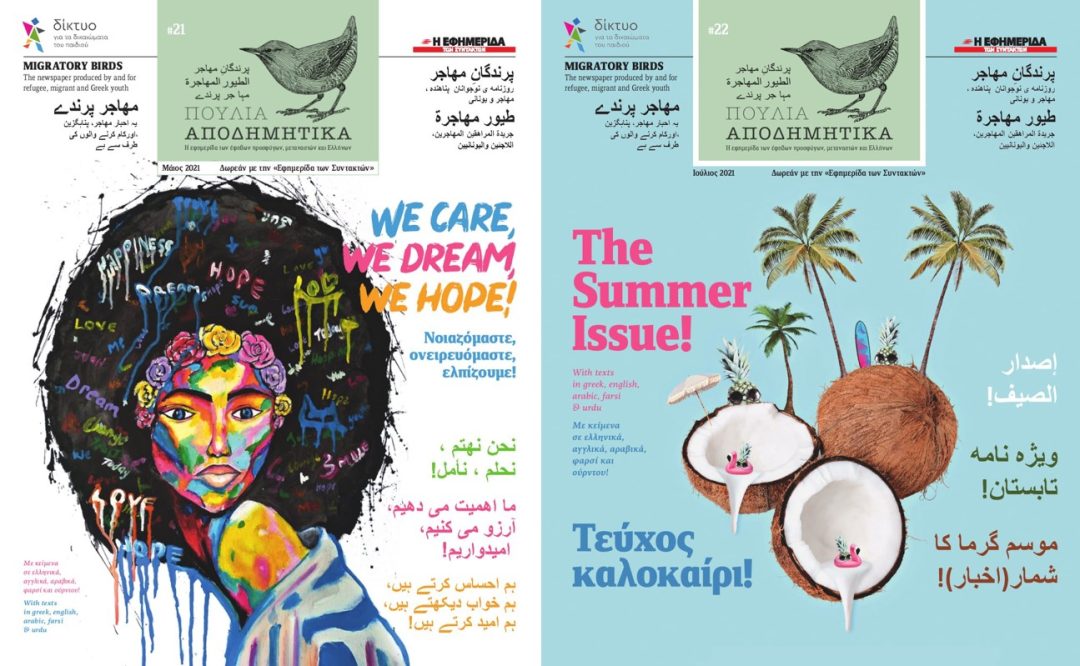
The “Young Journalists” program was recognized as a “best practice” in integration and included in was included in a practical handbook for professionals working with children prepared by the Council of Europe Children’s Rights Division. In this context, the EFIVOS project was created, another initiative of the Network for the Children’s Rights, with the aim of upgrading the “Young Journalists” program, focusing on the extension of the good practice throughout the EU and further contributing to the acquisition of specialized skills by young people.
The publication of “Migratory Birds” and the production of the “Radio Dandelion” podcasts are carried out by the Child Rights Network with the support of the United Nations Refugee Agency UNHCR.
In the past, the program has also been supported by the Dutch Embassy in Athens, Unicef, the German Foreign Ministry, Save the Children and the John S. Latsis Public Benefit Foundation.
Network for Children’s Rights
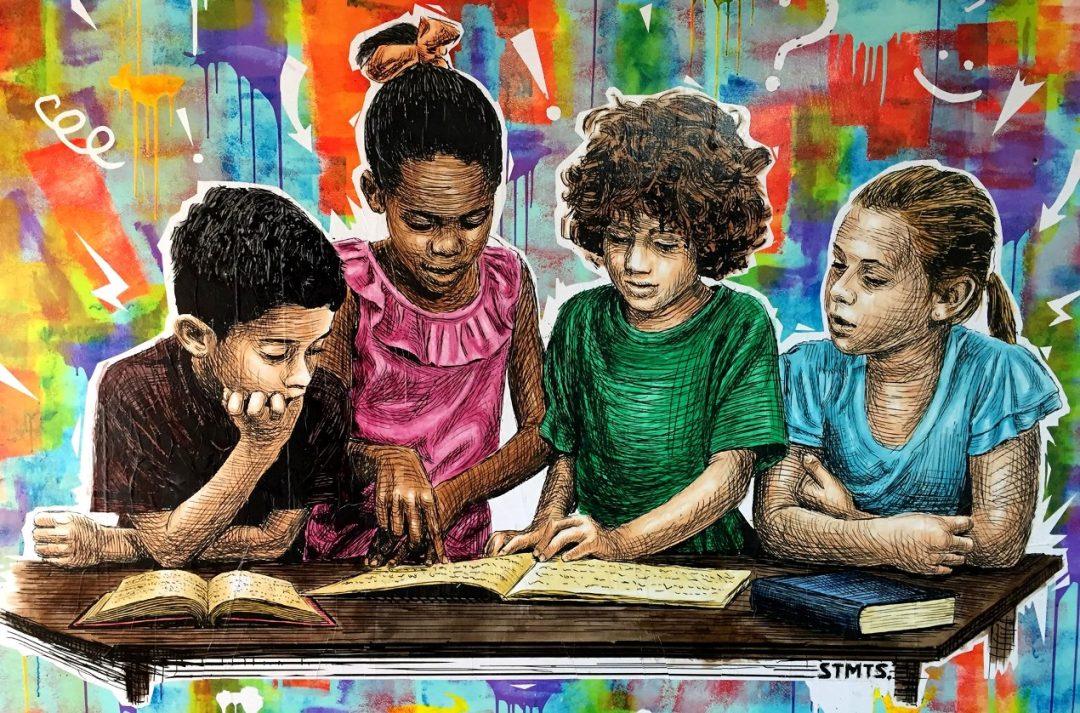
The Network for Children’s Rights acquired non-profit organisation status in 2004, but actually began as an informal action group four years earlier with the aim of raising awareness of problems relating to the rights of children and interceding in order to solve them. It encourages initiatives and actions to ensure that the UN International Convention on the Rights of the Child is implemented in Greece, to guarantee respect for diversity and to put an end to discrimination. Its members are teachers, parents, university lecturers, authors, artists and children who work on a voluntary basis both within and outside the school community. They carry out surveys, campaigns and programmes.
The Network cooperates with international bodies and other organizations and associations in Greece and Europe, organizes two campaigns per year, publishes publications, rewards students for their initiatives, offers material and moral support to groups of vulnerable minors and to their families, organizes seminars for teachers and parents, trains volunteers and encourages socialization through various activities.
Photos: Migratory Birds Page FB
I.L., translated from the Grèce Hebdo article : ‘Migratory Birds’ le journal des jeunes réfugiés en Grèce


